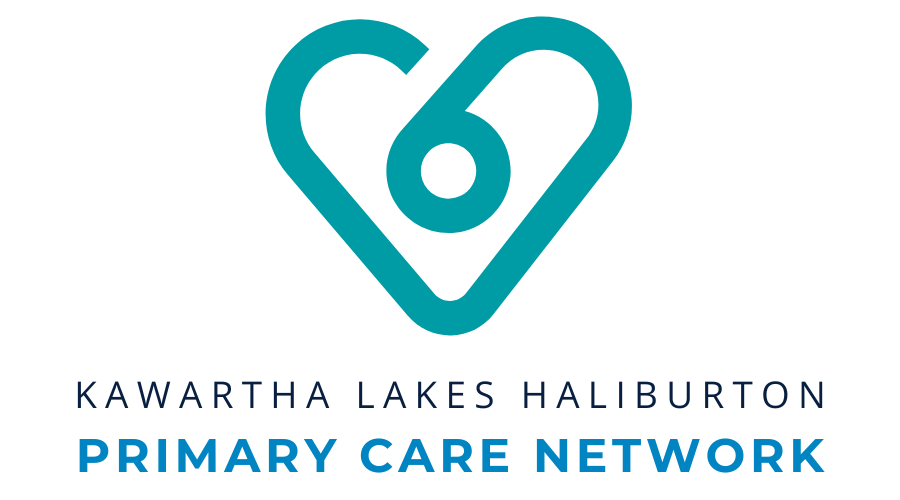COPD/CHF Referral Pathway
What is the COPD/CHF Referral Pathway?
The clinical referral pathway for Chronic Obstructive Pulmonary Disease (COPD) and Congestive Heart Failure (CHF) is designed to streamline the referral options available to providers and patients within Kawartha Lakes and Haliburton County.
Criteria for Community Resources
Consider any combination of Community Paramedicine RCM, OH@H and PCCT as appropriate and available.
Community Paramedicine Remote Care Monitoring
Refer if: Pt/ caregiver consent to CP involvement with RPM equipment. Have a dx of HF or COPD moderate-severe that requires support and monitoring.
- Moderate to severe symptom management
- New onset of chronic disease or increase in frailty
- Multiple co-morbidities
- Limited supports
Services Include:
- CP home visits and in-person set-up of RPM equipment.
- Support and education of their HF and/or COPD dx
- Safety scan
- Medication compliance
- RPM
- Liaison and referral pathways
- Urinalysis
- Medical guidelines that aid with symptom relief and symptom management
Do not refer if:
- Already receiving THC or enrolled in Self-Management program at OH@H.
- Pt does not have internet or cellular connectivity. (they can still be referred to CP without RPM equipment).
Referral links:
Palliative Care Community Team
Refer If: Significant decline in condition (change in appetite, ADL’s, increase in O2 usage or initiation of home O2, poor home supports) 6 - 12-month surprise question, multiple recent hospitalizations, has life-limiting diagnosis, and wishes to discuss advance care planning or their palliative plan of care
Services Include: Nurse Navigator, supportive care counselling, volunteers, illness/caregiver support groups via Zoom (CKL) and in person (Haliburton County), shared care physician support (CKL only)
Do Not Refer If: Client does not agree to referral
Referral links:
Ontario Health atHome Self Management Program
Refer If: Patient/caregiver expresses a desire to make health behaviour changes but is having difficulty taking action and is comfortable and/or interested in learning in a group environment
Services Include: Peer-led single session or multi-week workshops (in person, phone and online) that address managing caregiver role or specific health challenges related to chronic disease Self-Management such as chronic pain, nutrition, sleep hygiene, medications etc
Do Not Refer If: Patient /caregiver does not desire to make changes, is cognitively impaired/medically unstable or looking for support from a health professional
Additional Information:
- 6 week Living a Healthy Life with Chronic Conditions or Living a Healthy Life with Chronic Pain workshops. Workshops are available in person, online or via telephone and range from 1-2.5 hours per session depending on the format. Caregivers can also attend these workshops with or without the patient.
- 6 week Powerful Tools for Caregivers workshop. Workshops are available in person or online and each session is 1.5 – 2 hours in duration
- 1.5 hour Getting the Most out of Your Healthcare Appointment Workshop. Workshops are available in person or online.
- 1.5 hour Interactive single session workshops regarding:
- Understanding Sleep and Stress
- Understanding Food Labels
- Practical Planning for Your Health
- Understanding Blood Pressure
- Understanding Your Medications
- Understanding Joint and Back Pain
- Understanding Digestion
Referral links:
Ontario Health atHome Telehomecare
Refer If:
- Patient articulates willingness to receive education and monitoring for 6 months related to their clinical condition (CHF, COPD or CHF and COPD) with provided monitoring equipment.
- Patient has mild to moderate COPD and/or CHF
Services Include:
- Education on how to self-monitor and self-manage symptoms of disease through telephone calls with clinicians and a care plan related personalized data (blood pressure, weight, oxygenation) being reported daily with provided equipment
Do Not Refer:
- Inability to step on and off the scale daily (be balanced on the scale for accurate readings); challenged with stability.
- Patient does not have a telephone (THC is telephone-based program)
- Patient who has a language barrier and not wanting to use interpretation services, (example, Family member) to assist in educational component of program
Definitions:
COPD:
Mild:
Shortness of breath from COPD when hurrying on the level or walking up a slight hill
Moderate:
Shortness of breath from COPD causing the patient to stop after walking approximately 100m (or after a few minutes) on the level ground
CHF:
Mild (class II):
Slight limitation of physical activity. Comfortable at rest, but ordinary physical activity results in fatigue, palpitation or dyspnea
Moderate (class III):
Marked limitation of physical activity. Comfortable at rest, but less than ordinary physical activity results in fatigue, palpitation or dyspnea
Refer:
Refer using “COPD and Heart Failure Telehomecare Referral Form (PROVINCIAL)”. Fax 905-444-2555 or 1-855-352-2555
Total
28.5 hours over a minimum of 6 weeks



